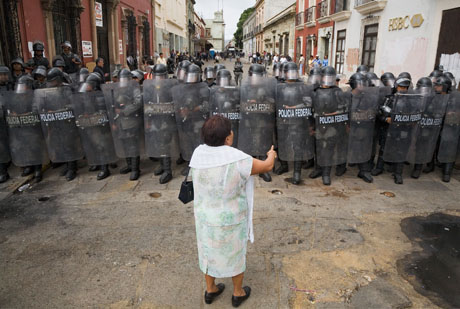
Appel à contributions
Feminists Interrogate States of Emergency
Avant le 1er août - Feminist Formations
Call for Papers for a Special Issue of Feminist Formations, 2013, 25(2)
This special issue will take up the concept of “states of emergency” as an object of feminist analysis. We seek essays that will interrogate the ways in which a “state of emergency,” whether it be about economic scarcity, morality under siege, sexual violence or national security, is politically constructed and (re)produced through myriad technologies of power. How do political actors define a moment as a state of emergency in order to mobilize publics, re-define citizenship, or deploy political machinery ? At the same time, we invite scholarship that names states of emergency made invisible by existing public discourse. In addition to essays that analyze the role and power of difference in framing narratives of emergency, we invite papers that question what can “count” as a state of emergency. For example, how can the racialized, sexualized and gendered exigencies of the everyday be seen as constitutive of affected “states” ? How are so-called “natural disasters” of environmental calamity or contamination dependent on variable distinctions between “natural” and “unnatural” ?
We seek papers that interrogate “states of emergency” in relation to gender, sexuality and race on topics such as war, institutions, law, literature, popular culture, “natural disasters,” state and intimate violence, citizenship, immigration, environment, population, health, and economic instabilities. We welcome contributions with U.S., global and transnational foci.
The special issue will focus on the following themes and questions but is not restricted to them :
. How are “states of emergency” produced, claimed and deployed ? What are the institutional (e.g., government, media, religion) and/or informal (e.g., local networks) mechanisms that create /construct or facilitate a “state of emergency” ?
. How and why are certain events framed as “natural disasters” ? Why are certain experiences with environmental disasters represented as “natural” and what division between “nature” and “human” is required ? How do the global and transnational operate within these constructs of “natural” and in locating disaster ?
. What does it mean to approach disaster relief from an intersectional perspective ? What lessons have we learned frompost-disaster relief efforts in the United States, such as after Hurricane Katrina and 9/11 ? How do such efforts operate at an international level, as with the UN in the post-Rwandan genocide projects ?
. How are discourses about environmental states of emergency (such as with populations, environmental contamination and global warming) deployed and informed by understandings of gender, race and sexuality and other naturalized categorizes such as “health” and “safety” ?
. How have the issues of immigration and economic recession been crafted as “states of emergency” in the United States and/or in other countries ? What political projects have they served ? What counts as a “state of emergency ?”
. How does the state produce narratives about states of emergency—stranger abduction, morality under siege, economic scarcity or debt, sexual violence—in ways that are shaped by gendered, sexualized and racialized discourse ?
. How do feminist understandings of affective “states” alter the framework of “states of emergency” ? What cultural or emotional terrains do we traverse when we include such understandings of “states of emergency ?”
. How do representations—fiction, memoir, film, art, television, online sites—address states of emergency ? How can representations reinforce or resist dominant narratives about women/subjects in crisis ?
Manuscripts will be subject to blind review and must adhere to the publishing guidelines of the Feminist Formations journal, found at : http://feministformations.arizona.edu
Please contact any one of the co-editors with questions :
Jill Bystydzienski, The Ohio State University bystydzienski.1@osu.edu
Jennifer Suchland, The Ohio State University suchland.15@osu.edu
Rebecca Wanzo, Washington University in St. Louis rwanzo@wustl.edu
Submission Process : Fullpapers should be sent to Jill Bystydzienski by August 1, 2012.
Fichiers de syndication :
Statistiques :
Le site contient 4383 articles
